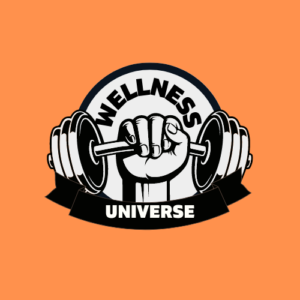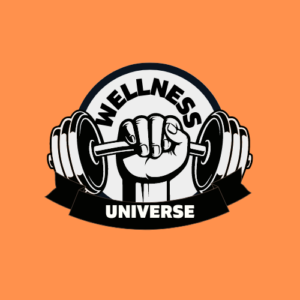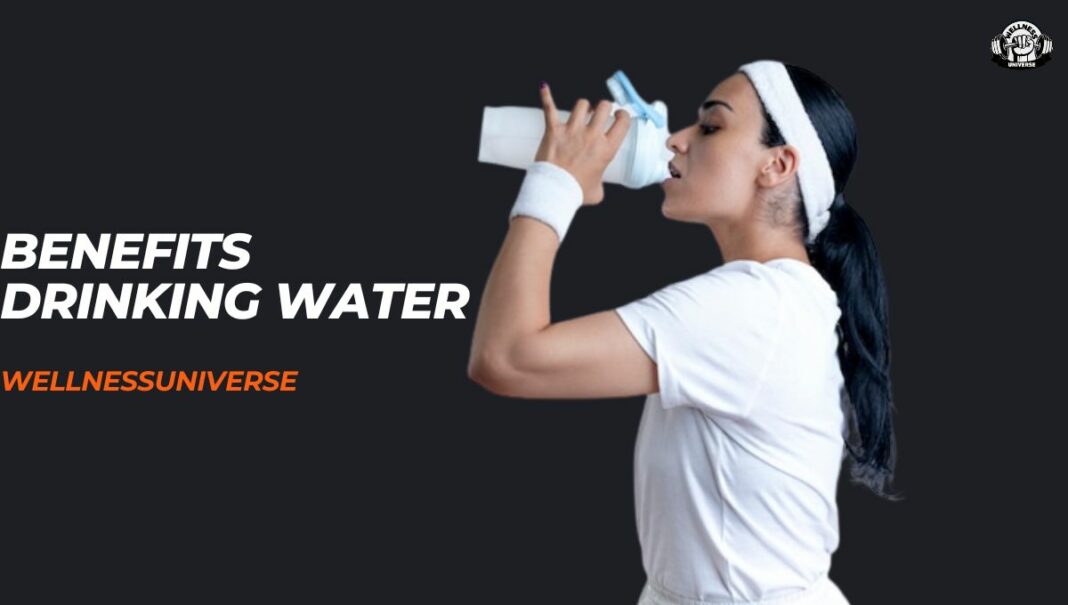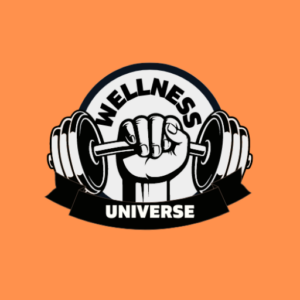Welcome to the world of hydration, where a simple act of drinking water plays a pivotal role in nurturing our bodies and minds. Hydration is more than just quenching our thirst; it is the foundation of optimal health and well-being. Staying properly hydrated is crucial as water is involved in nearly every bodily function, from regulating body temperature and transporting nutrients to supporting vital organs. Without adequate hydration, our bodies can’t perform at their best, leading to a cascade of negative effects on our health.
Water, the elixir of life, is an essential nutrient that makes up a significant portion of our body. From maintaining the balance of bodily fluids to cushioning our joints and protecting vital organs, water is the unsung hero that keeps our physiological processes in harmony. Proper hydration is the key to keeping our bodily systems running smoothly, allowing us to be energized, focused, and at our best throughout the day.
In this comprehensive guide to drinking water and hydration, we will dive deep into the myriad benefits of staying properly hydrated. From understanding the ideal amount of water you should be drinking daily to exploring how hydration impacts digestion, skin health, and weight management, we leave no stone unturned. We’ll also debunk myths about bottled water versus tap water and share creative tips to help you stay motivated to drink more water. Whether you’re seeking to enhance your athletic performance or simply improve your overall well-being, this blog is your ultimate resource for all things hydration. Let’s quench our thirst for knowledge and embark on a journey towards a healthier and happier you.
How Much Water Should I Drink Daily
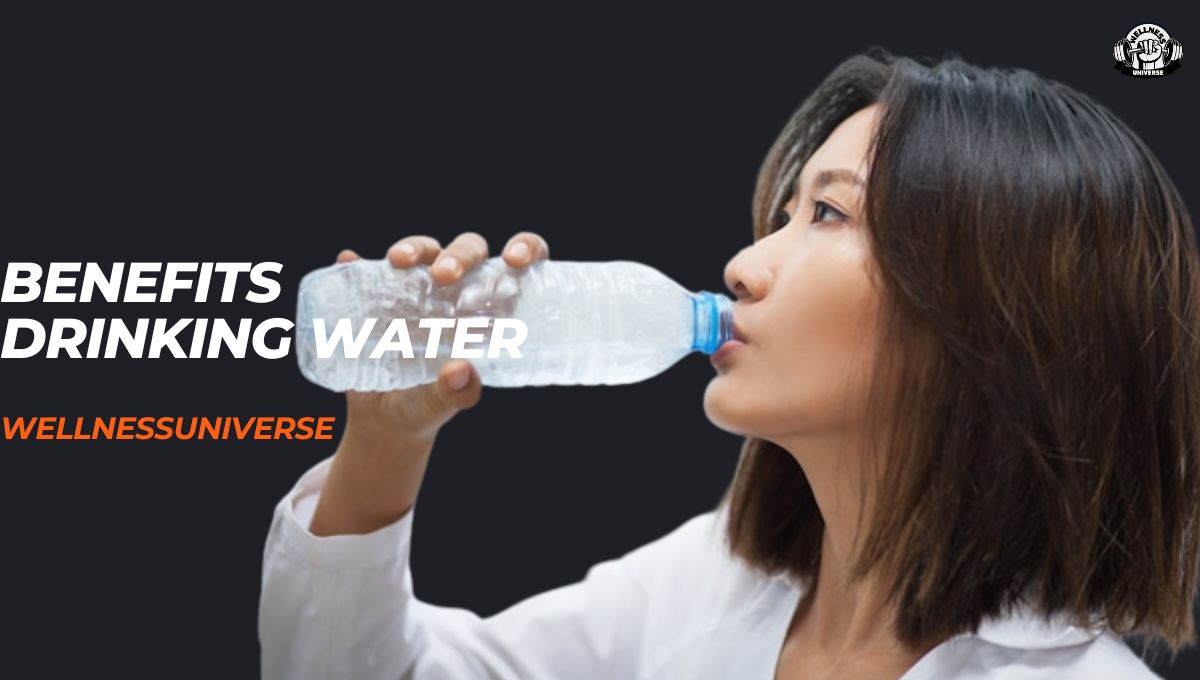
The ideal daily water intake varies from person to person, as it depends on various factors such as activity level, body size, and the climate in which you live. One of the primary determinants of how much water you need is your activity level. If you lead an active lifestyle, engage in regular physical exercise, or work in a labor-intensive job, your body will naturally lose more water through sweat, making hydration even more crucial.
Moreover, the climate you live in plays a significant role in your hydration needs. In hot and humid weather, you are more likely to sweat profusely, leading to increased water loss. On the other hand, in colder climates, you may not feel as thirsty, but your body still requires proper hydration to function optimally.
The “8×8 rule,” also known as the “eight 8-ounce glasses a day,” has long been a popular guideline for daily water intake. While this rule can serve as a general starting point, it may not be suitable for everyone. Instead, many health experts now recommend an individualized approach to hydration.
A more accurate guideline is to drink approximately half an ounce to an ounce of water per pound of body weight each day. For example, if you weigh 150 pounds, your daily water intake should be around 75 to 150 ounces (2.2 to 4.4 liters). This approach considers your body’s specific needs, ensuring you’re getting enough water to support your unique physiology.
Beyond activity level and climate, several other factors can influence your water intake requirements. Pregnancy and breastfeeding, for instance, increase the need for water to support the growing baby and milk production. Additionally, certain health conditions, such as kidney stones or urinary tract infections, may call for increased water consumption to promote kidney health and prevent complications.
Individuals with specific medical conditions, such as heart failure or edema, may need to monitor their fluid intake more closely under the guidance of a healthcare professional. On the other hand, some health conditions may require limitations on fluid intake, such as individuals with congestive heart failure or kidney disease.
Remember, thirst is a reliable indicator of your body’s need for water. Listening to your body and drinking when you feel thirsty is a fundamental aspect of staying adequately hydrated. Additionally, paying attention to the color of your urine can offer insights into your hydration status; pale yellow urine is a sign of proper hydration, while dark yellow or amber urine may indicate the need for more fluids.
By taking into account your lifestyle, individual factors, and health conditions, you can tailor your daily water intake to ensure optimal hydration and overall well-being. Stay tuned as we explore the numerous health benefits of drinking water and how it supports various bodily functions.
Health Benefits of Drinking Water Regularly
Proper hydration plays a critical role in optimizing physical performance and endurance. During exercise or any physical activity, your body loses water through sweat, leading to a reduction in fluid levels. Even mild dehydration can significantly impact performance by causing fatigue, decreased coordination, and impaired concentration.
Staying well-hydrated ensures that your muscles receive the necessary oxygen and nutrients to function efficiently. It also helps regulate body temperature and prevent overheating during intense workouts. Whether you’re an athlete or engage in regular fitness routines, drinking enough water before, during, and after physical activity is essential to maintain peak performance and minimize the risk of dehydration-related issues.
Water is not only crucial for physical performance but also for maintaining optimal brain function and mental clarity. The brain is primarily composed of water, and adequate hydration supports various cognitive processes, including concentration, memory, and mood regulation.
When you’re dehydrated, you may experience difficulty focusing, reduced alertness, and impaired short-term memory. Studies have shown that even mild dehydration can lead to a decline in cognitive function, affecting both children and adults. On the other hand, staying hydrated can improve cognitive performance and promote a more positive mood.
Water plays a vital role in detoxifying the body and eliminating waste products. It serves as a transport medium, helping flush out toxins and waste through various elimination channels, such as urine and sweat. Adequate hydration supports the function of the kidneys, which are responsible for filtering waste and maintaining fluid balance in the body.
Moreover, staying well-hydrated aids in preventing constipation and promoting regular bowel movements. It softens stool, making it easier to pass and reducing the risk of gastrointestinal discomfort. Ensuring adequate water intake helps keep the digestive system running smoothly and promotes overall gut health.
In summary, drinking water regularly offers numerous health benefits that extend beyond simple hydration. Proper hydration enhances physical performance, supports brain function, and aids in the body’s natural detoxification processes. By incorporating mindful hydration habits into your daily routine, you can harness the power of water to optimize both your physical and mental well-being. Stay tuned for more insights into the impact of water on skin health, weight management, and overall vitality.
Drinking Water for Weight Loss
Drinking an adequate amount of water can be a powerful tool for managing appetite and preventing overeating. Often, the sensation of thirst can be mistaken for hunger, leading to unnecessary snacking and increased calorie intake. By staying hydrated throughout the day, you can better distinguish between true hunger and thirst cues.
When you feel hungry, try drinking a glass of water first and wait a few minutes to see if the sensation subsides. Many times, mild dehydration can be mistaken for hunger, and addressing your thirst with water can help reduce unnecessary food consumption.
Moreover, water can create a feeling of fullness, especially when consumed before or during meals. This effect can lead to reduced calorie intake during meals, ultimately contributing to weight management efforts. Drinking water before meals can also help you eat more mindfully, allowing you to better gauge your hunger and fullness levels, leading to more controlled eating habits.
One of the most significant advantages of drinking water for weight loss is its calorie-free nature. Unlike sugary beverages like sodas, juices, and energy drinks, water contains zero calories. By replacing high-calorie drinks with water, you can reduce your overall caloric intake without sacrificing volume or hydration.
Choosing water over calorie-laden beverages also helps avoid consuming empty calories from added sugars and artificial sweeteners, which can lead to weight gain and other health issues. Regularly drinking water can assist in creating a calorie deficit, which is essential for weight loss. It complements a balanced diet and exercise routine, making it easier to achieve and maintain a healthy weight.
To enhance weight loss efforts through proper hydration, consider incorporating the following strategies:
- Carry a reusable water bottle: Keep a water bottle with you throughout the day to encourage consistent hydration. Having water readily available will make it easier to stay hydrated, even during busy hours.
- Set reminders: If you tend to forget to drink water, set alarms or reminders on your phone to prompt you to take a sip regularly.
- Drink water before meals: As mentioned earlier, drinking water before meals can help control appetite and prevent overeating. Aim to have a glass of water about 30 minutes before your main meals.
- Infuse water with flavor: If you find plain water less appealing, try infusing it with natural flavors like lemon, cucumber, or mint. This can make water more enjoyable and encourage increased intake.
- Monitor your intake: Keep track of your daily water intake to ensure you are meeting your hydration goals. Many fitness apps and trackers allow you to log your water consumption.
- Listen to your body: Pay attention to your body’s thirst signals and drink water when you feel thirsty. Remember that individual hydration needs may vary based on factors such as activity level, climate, and overall health.
By incorporating these strategies into your daily routine, you can harness the power of water to support your weight loss and appetite control goals. Remember that drinking water is just one aspect of a comprehensive weight management plan that includes a balanced diet, regular physical activity, and overall mindful eating habits. Stay hydrated, stay healthy, and continue your journey towards a fit and vibrant life.
Signs of Dehydration and Strategies
Dehydration occurs when the body loses more fluids than it takes in, leading to an insufficient amount of water to carry out essential bodily functions. It’s crucial to recognize the early signs of dehydration to address the issue promptly. Some common symptoms of mild dehydration include:
- Thirst: The sensation of thirst is one of the body’s first signals of dehydration. It serves as a natural mechanism to encourage you to drink more water.
- Dark yellow urine: The color of your urine can indicate your hydration status. Dark yellow or amber-colored urine suggests that you may not be drinking enough water.
- Fatigue and weakness: Dehydration can lead to decreased energy levels and feelings of fatigue and weakness.
- Dry mouth and dry skin: Insufficient hydration can result in dry mouth and dry skin due to reduced saliva production.
- Headache: Dehydration can trigger headaches and migraines in some individuals.
To maintain proper hydration, consider implementing the following practical tips:
- Drink water first thing in the morning: Start your day by drinking a glass of water to kickstart your hydration and rehydrate after hours of sleep.
- Carry a water bottle: Keep a reusable water bottle with you wherever you go. Having water readily available will remind you to drink regularly.
- Set hydration goals: Aim to drink a certain amount of water each day. The “8×8 rule” (eight 8-ounce glasses of water) is a simple guideline, but individual needs may vary based on factors like age, weight, and activity level.
- Drink throughout the day: Sip water consistently throughout the day rather than trying to consume large amounts all at once.
- Infuse water with flavor: Add natural flavors like citrus fruits, berries, or herbs to your water to make it more enjoyable and encourage increased intake.
- Create hydration reminders: Set reminders on your phone or use hydration apps to prompt you to drink water at regular intervals.
- Monitor urine color: Check the color of your urine regularly. Pale yellow urine indicates good hydration, while darker shades may signal dehydration.
- Hydrate before meals: Drink a glass of water before meals to support digestion and prevent overeating.
Staying hydrated during physical activity is crucial for optimal performance and safety. When you exercise, your body loses water through sweat, and failure to replenish these lost fluids can lead to dehydration and impaired performance. Follow these guidelines for proper hydration before, during, and after exercise:
- Pre-exercise hydration: Drink water before starting your workout to ensure you begin in a hydrated state. Aim to consume about 16 to 20 ounces of water 1 to 2 hours before exercise.
- During exercise hydration: During prolonged or intense workouts, aim to drink 7 to 10 ounces of water every 10 to 20 minutes to maintain proper hydration. Adjust this amount based on factors like climate and individual sweat rate.
- Post-exercise hydration: Rehydrate after your workout to replace lost fluids. Consume at least 16 to 24 ounces of water for every pound of body weight lost during exercise.
By recognizing the signs of dehydration and implementing practical strategies for staying hydrated, you can support your overall health and well-being. Proper hydration is essential for numerous bodily functions and is a fundamental aspect of maintaining a healthy lifestyle. Make drinking water a habit, and reap the benefits of a well-hydrated and energized body.
Creative Ways to Stay Motivated
If you find plain water monotonous, consider infusing it with natural flavors to make hydration more enjoyable. Infused water adds a burst of taste and nutrients without the added sugar or calories of flavored beverages. Here are some refreshing ideas to try:
- Citrus Delight: Squeeze fresh lemon, lime, or orange slices into your water for a zesty twist.
- Berry Bliss: Drop in a handful of fresh berries like strawberries, blueberries, or raspberries to add a hint of sweetness.
- Cucumber Mint Refresher: Slice cucumbers and add a few sprigs of mint for a refreshing and cooling drink.
- Tropical Fusion: Create a tropical vibe by adding pineapple chunks and a splash of coconut water.
- Herb-Infused Elixir: Experiment with herbs like basil, rosemary, or lavender for a unique flavor profile.
In the digital age, there are numerous apps and gadgets designed to help you stay on top of your hydration game. These tools can be motivating and practical for tracking water intake and setting hydration goals. Here’s how they can help:
- Hydration Apps: Download hydration apps that remind you to drink water at regular intervals and allow you to log your daily water intake.
- Smart Water Bottles: Invest in smart water bottles that connect to your phone via Bluetooth. These bottles can track your water intake and send reminders when it’s time to drink.
- Fitness Trackers: Many fitness trackers now include a water tracking feature, enabling you to monitor your hydration levels alongside your activity.
- Water Intake Journals: Keep a water intake journal to manually track your daily water consumption and set hydration goals.
Making water a regular part of your mealtime rituals can help ensure consistent hydration throughout the day. Here are some ideas to incorporate water into your meals:
- Start with a Glass: Begin each meal with a glass of water to kickstart your hydration and support digestion.
- Water with Snacks: Pair your snacks with a glass of water to stay hydrated between meals.
- Hydrating Soups and Smoothies: Include soups and smoothies made with water-rich ingredients to add hydration to your meals.
- Herbal Teas: Enjoy herbal teas as a hydrating and calming beverage option, especially after meals.
- Make It Festive: Use colorful and attractive glasses or tumblers to make drinking water feel more special.
Remember that staying motivated to drink more water is about finding what works best for you. Whether it’s the taste of infused water, the convenience of apps, or incorporating water into your mealtime rituals, these creative approaches can help you maintain optimal hydration levels and support your overall health. Drink up and savor the benefits of a well-hydrated body!
In Crux
As we conclude this journey through the world of hydration, I want to emphasize the importance of cultivating healthy hydration habits in your daily life. Hydration is not just a simple act of drinking water; it’s a conscious decision to prioritize your health and well-being. By making hydration a priority, you are laying the foundation for a healthier and more energized you.
Remember that proper hydration isn’t a one-time task; it’s a continuous process. Consistency is key, and small daily efforts can lead to significant improvements in your overall health and vitality. Listen to your body’s thirst cues and respond to them mindfully.
Take a moment to celebrate the numerous positive impacts that drinking water has on your body and mind. From boosting physical performance and enhancing brain function to promoting better digestion and supporting detoxification, water plays a vital role in every aspect of your well-being.
By staying well-hydrated, you’re nourishing your body with the essential fluid it needs to function optimally. Improved focus, heightened energy levels, and a clearer complexion are just some of the rewards of this simple yet powerful habit.
I hope this journey through the world of hydration has inspired you to embrace hydration as a foundational element of your wellness journey. As you continue your pursuit of a healthier lifestyle, remember that drinking water isn’t just another task on your to-do list; it’s an act of self-care and self-nourishment.
Stay mindful of your hydration habits, especially during busy and stressful times when it’s easy to overlook the importance of water. Incorporate creative ways to stay motivated and make drinking water enjoyable. Remember, every glass of water you drink brings you closer to a healthier and happier version of yourself.
In conclusion, let water be your trusted companion on the path to better health. Prioritize hydration, celebrate the small victories, and nourish your body and mind with the elixir of life – water. Your journey toward optimal health begins with a simple sip. Cheers to hydration, cheers to wellness, and cheers to a revitalized you!
Thank you for joining us on this fitness journey! We hope you found our Hydration Nation: Unveiling the Power of Drinking Water? blog insightful and inspiring. Our aim is to provide you with valuable information, expert advice, and motivational content to support you in your wellness endeavors.
Related Post :-
- How To Do Wall Pushups
- Hand Size Demystified
- CrossFit Unleashed
- Barbell Lunges
- Forearm Fortitude
- Kettlebell Circuit
- Power of Personal Trainers
- Down Pull-Ups
FAQs about Drinking Water
Can drinking water help with weight loss and appetite control?
Yes, drinking water can play a significant role in weight management. Staying hydrated can help manage appetite and reduce overeating by providing a feeling of fullness. Additionally, choosing water over high-calorie beverages like sugary sodas or fruit juices can contribute to calorie reduction. Drinking water before meals can also aid in portion control, as it may help you feel satisfied with smaller servings.
What are the signs of dehydration, and how can I stay hydrated?
Signs of dehydration include dark yellow urine, dry mouth, fatigue, dizziness, and headache. To stay hydrated, drink water regularly throughout the day, even if you don't feel thirsty. Carry a reusable water bottle with you as a reminder to hydrate. Infuse your water with fruits or herbs for added taste and enjoyment. Set reminders on your phone or use apps to track your water intake. Be mindful of your water consumption during physical activity, hot weather, or when you're feeling unwell.
Are there specific foods that aid digestion?
Yes, certain foods can support digestion. Foods rich in fiber, such as fruits, vegetables, whole grains, and legumes, promote regular bowel movements and aid digestion. Probiotic-rich foods like yogurt, kefir, and sauerkraut can contribute to a healthy gut by supporting beneficial gut bacteria. Additionally, foods with natural digestive enzymes, such as pineapple, papaya, and ginger, can assist in breaking down nutrients.
Can drinking water improve skin health and complexion?
Absolutely! Proper hydration is essential for healthy and glowing skin. Water helps maintain skin elasticity, plumpness, and hydration. It flushes out toxins from the skin and supports the natural detoxification process. Staying well-hydrated can also reduce the appearance of fine lines and wrinkles, giving your skin a more youthful and radiant appearance.
How does hydration impact brain function and mental clarity?
Hydration plays a crucial role in cognitive function and mental clarity. When you're dehydrated, you may experience decreased focus, concentration, and short-term memory. Drinking enough water helps ensure proper blood flow and oxygen delivery to the brain, enhancing cognitive performance and overall mental alertness.
Is it safe to drink tap water, or should I opt for bottled water?
In most developed countries, tap water is safe to drink as it undergoes rigorous testing and treatment to meet safety standards. Bottled water may not always be safer than tap water and can generate plastic waste. To ensure the safety of your tap water, use a water filter or contact your local water provider for information about water quality.
How does drinking water support kidney function and overall detoxification?
Water is essential for kidney function as it helps flush out waste products and toxins from the body. Proper hydration enables the kidneys to filter and excrete waste through urine effectively. Staying hydrated reduces the risk of kidney stones and supports overall kidney health.
What is the best temperature of water to drink for maximum benefits?
There is no specific temperature of water that is superior for hydration. Whether it's cold, room temperature, or warm, the most important aspect is staying hydrated throughout the day. Some people find it easier to drink water at a specific temperature, so choose what you enjoy and what encourages you to drink more water.
Are there alternatives to plain water that offer similar hydration benefits?
Yes, other beverages and foods can contribute to hydration. Herbal teas, infused water, coconut water, and water-rich fruits and vegetables like cucumbers and watermelon are good options. However, be mindful of added sugars or artificial ingredients in certain beverages and opt for natural, low-calorie options whenever possible. Plain water remains the best and most efficient way to stay hydrated.

Meet Pradeep Singh, your go-to guide for all things fitness, health, and motivation. With over 7 years in the field, Pradeep brings a blend of expertise and real-world experience to his writing. From workout tips to healthy living insights, he simplifies complex topics, making fitness accessible for everyone. His authentic approach and genuine passion aim to inspire and support your wellness journey. Get ready to embark on a path to a healthier lifestyle with Pradeep as your trusted companion and motivator.
